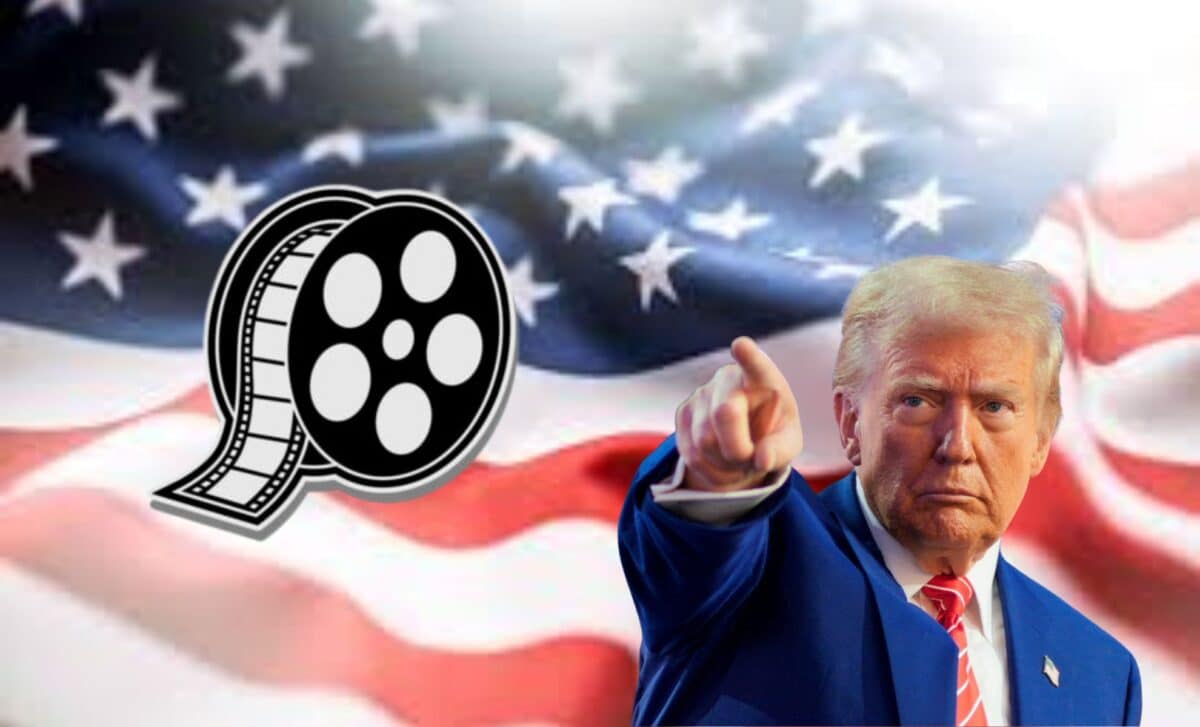US President Donald Trump has announced plans to impose a 100% tariff on all films produced outside the United States, calling foreign film production a national security threat.
The proposal has triggered confusion across the international film sector, raising questions about the feasibility, scope and economic impact of the measure.
The move marks a significant expansion of the president’s protectionist trade agenda into the entertainment industry.
In a post on his Truth Social platform, Trump criticised foreign countries for “stealing” American filmmaking through tax incentives, describing the situation as a coordinated effort to undermine the US industry.
The announcement comes amid continued strain on the US film sector, which has faced production declines due to labour strikes, the COVID-19 pandemic and competitive international incentives.
Industry representatives and international officials are now seeking clarity on the policy’s implementation and possible repercussions.
Industry Leaders Left Uncertain Over Enforcement and Scope
In his online statement, President Trump directed the Department of Commerce and the US Trade Representative to begin instituting tariffs on “any and all movies coming into our country that are produced in foreign lands”.
However, the administration has not clarified whether the levy would apply to foreign-made films distributed by US studios, films produced by American companies but shot abroad, or streaming content.
The Motion Picture Association (MPA), which represents major US studios, declined to comment. Yet, according to its latest report, the US film industry generated $22.6 billion in exports and a $15.3 billion trade surplus in 2023.
Hollywood executives have reportedly convened emergency meetings to assess the policy’s implications, according to reports.
Speaking to BBC Radio 4, Vue cinema chain founder Timothy Richards questioned how US-produced content would be defined under the proposed tariff: “Is it where the money comes from? The script, the director, the talent, where it was shot?”
Critics argue that the policy lacks a coherent framework. According to industry data from ProdPro, 50% of production budgets over $40 million were spent outside the US in 2023, including for projects led by Disney, Universal and Netflix.
Films like Deadpool & Wolverine and Jurassic World Rebirth are among several big-budget productions with extensive foreign shoots.
Global Backlash Highlights Trade Tensions and Economic Stakes
Trump’s announcement has prompted international reaction, particularly from countries that host major productions.
The New Zealand Screen Producers Guild said the policy was “confusing”, adding that both foreign and American studios benefit from cross-border production. Australia’s Screen Producers Association warned that the measure could destabilise international cooperation in the film sector.
Governments in the UK, Canada, Australia, and New Zealand have all indicated plans to advocate for their domestic industries. According to reports, production in the Los Angeles area dropped by 26% between 2021 and 2023, with California ranking only sixth in producers’ preferred filming locations.
A key concern is potential retaliation. In April, China’s Film Administration said it would limit the number of US films permitted in its cinemas, citing ongoing trade disputes. American titles had grossed $585 million in China in 2024, down from earlier years due to cooling relations.
Although Trump’s objective is to reinvigorate domestic filmmaking, analysts warn the tariff could disrupt global distribution chains and reduce access to international markets. Former commerce official William Reinsch said: “The retaliation will kill our industry. We have a lot more to lose than to gain.”
The tariff proposal, though still undefined in operational terms, adds a new dimension to the ongoing debate over globalisation, cultural exchange and economic nationalism in the post-pandemic media landscape.









